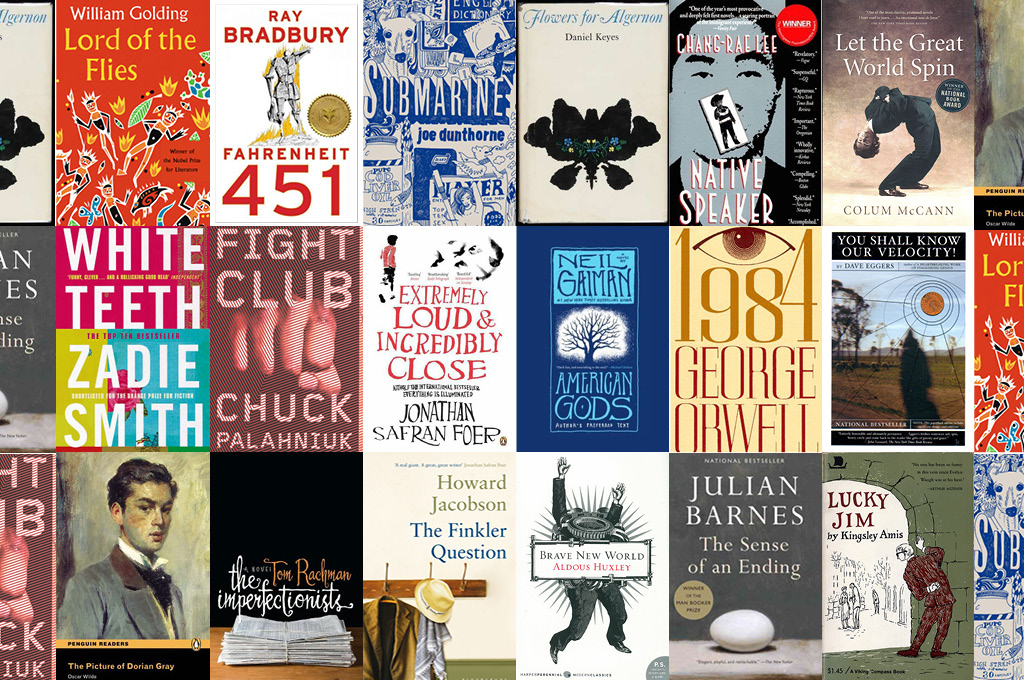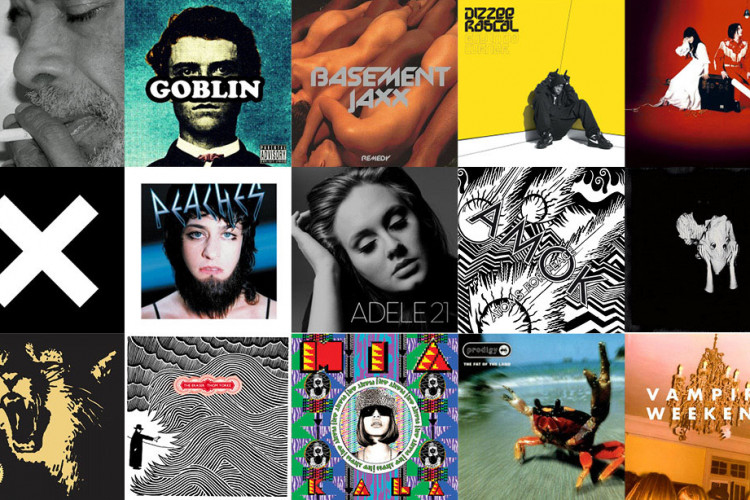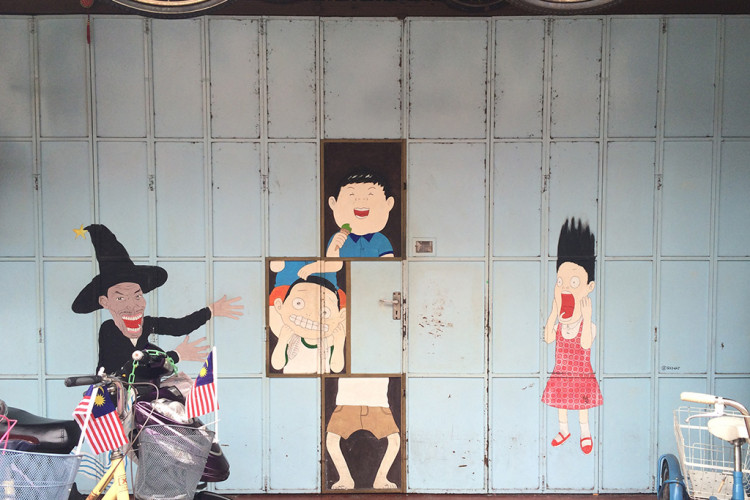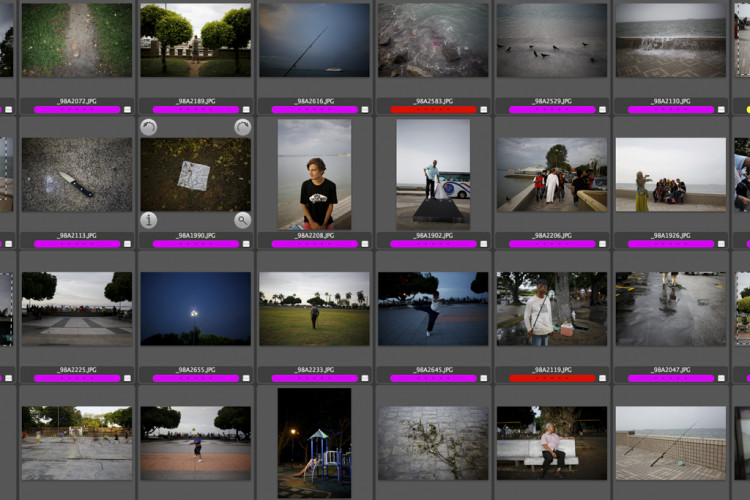
Though this city’s insane traffic and heavily polluted air are the two things that I still haven’t gotten used to since coming back to Jakarta, I’m also in the process of getting along with mosquitoes. Not only do their bites make me unbearably itchy, the soft yet not quite soft enough buzzing of their tiny wings is a great source of distraction.
One evening, as I was sitting at the dining table reading Jean-Paul Sartre’s Nausea – which was not exactly the best book to sink into after a long day at work – I heard that all too familiar buzz. I knew an enemy was near. And I was right. Out of the corner of my eye, I saw a small black dot, hovering in the air. I tried to ignore it, and returned to the depressing world of French existentialism. But I couldn’t. My concentration was broken. An insect had stolen my attention, and it dragged me back into the “real world.” The world of Nausea suddenly turned into nothing but a few hundred pieces of paper resting on my otherwise empty dining table. Up until the point where I became aware of the mosquito, the same bundle of paper had been my “second life.”
People pick up a novel for many different reasons. If you are really into books, then the reasons would most likely revolve around the written work itself – whether it is the intriguing plot, clever dialogs, amazing character development, or the author’s admirable prose, and other technical things like that. I personally can’t get enough of beautiful prose, and I often select novels on that basis. But even casual readers would not choose to be committed (and commitment is indeed a big part of reading novels) to a work of literature with no particular agenda. Maybe they want to look for inspiration, or maybe they want to have something new to talk with a friend. Or maybe – and this applies to both types of readers – they are just, well, bored. Being bored isn’t necessarily a bad thing, of course. It’s definitely no surprise that extreme boredom pushes people to look for new things, things that they don’t already experience in daily life. And this brings us once again to the idea that novels can offer us an alternative existence, an attractive “second life” that Orhan Pamuk, the great Turkish novelist, talks about in his collection of essays, The Naive and Sentimental Novelist.
Although the essays are mostly about his life as a professional writer, he begins by talking about the novels he read throughout his youth, and how it was during that phase that he learned how to transform words on paper into whole new worlds in his mind. In another essay compiled in Other Colors entitled “My Father,” Pamuk mentions how he used to read books “voraciously and dizzy with excitement.” And perhaps he did so because he knew what they were capable of revealing. But the good thing about having two lives (or more, depending on how many books you read at a time) is not only useful in the sense that the reader gets to feel a sense of excitement, it also gives readers a chance to see things from different perspectives – which they can then compare and learn from.
One might argue that taking a novel too seriously to the point of considering it as the gate to a second, third, or fiftieth life is a waste of time because no matter how well it depicts “reality,” it is, in the end, a work of fiction. True enough, the novel is not a journalistic report, nor is it a business record. It is not “real” because it is not a documentary, and it is clear that it is not intended to be one. But it does not mean that its version of reality came out of nowhere. Novels are the products of writers who, despite being scattered across various time periods, come from the same planet we do. This means that even the most bizarre stories about aliens or wizards – things that are not about an existing city or a believable character – exist because they negate “reality.” In short, the main source of reference (i.e. human existence) is one that anyone can have access to. Every novel is affected by that same source; the only difference is that different authors use it according to their respective styles and goals.
But let us move away from the idea of the “second life” we can find in novels for a minute. According to Sven Birkerts, who is one of my biggest influences, “reading a novel involves a double transposition.” Realizing that the novel has its own realm is only the first stage. He notes, in the essay, “Reading in a Digital Age” (a highly recommended piece!), that it is impossible to dive into a novel without the “‘Let there be another kind of world’ premise.” The second stage is accepting that this other world is a fabrication. But this is not the important part. What Birkerts highlights are a.) The transition that occurs between the two stages, and b.) What the reader ought to do after the shift. Once the reader realizes that the novel being read is not “real” even if it originates from “reality,” meaning that their hope for gaining a second life is gone – what is there left to do? Should the reader return to his or her boring life? Should he or she keep on reading in spite of the fabrication?
Yes, the reader should stick to the story. This is what Birkerts thinks we ought to do. But his suggestion is not rooted in the conviction that one has no choice but to settle with the non-drama that is normal life if one does not continue with the task. Birkerts notes that the reader must learn how to maintain the initial interest sparked by the promise of another world while being simultaneously conscious of its fictive nature. One of the challenges of reading a novel, though it is certainly true for other formats as well, is maintaining concentration. In his opinion, the difficulty of this challenge has increased due to digitalization. We are easily distracted and end up getting bored far too quickly – even if it was boredom that made us turn to novels in the first place.
As a habitual reader and a fervent Internet user, I fully understand Birkerts’s concern. I, too, worry about my attention span sometimes. But one thing that makes me want to fight the temptations of the Web and keep looking for more novels to read is their element of uncertainty. It was Zadie Smith’s NW that made me aware of this sensation. For me, it was not an easy read, and I remember being a little frustrated by my inability to understand what Smith was trying to communicate. But then I realized that this state of incomplete comprehension is actually comforting because it is virtually impossible to really get the exact meaning of another person’s imagination. We can only guess and find pleasure in our assumptions.
By being a reader, we might have access to a “second life,” but maybe the one who really deserves to treat the novel that way is the writer. I am always awed by the imagination of these gifted individuals’ imagination, but even more so by their commitment to transform it into words so that others can have something to stimulate their minds. In a letter to a friend, Italo Calvino wrote, “the writer is someone who tears himself to pieces in order to liberate his neighbour.” I guess the least we can do, as readers, is to be equally, if not more committed, and give the novel our undivided attention.











